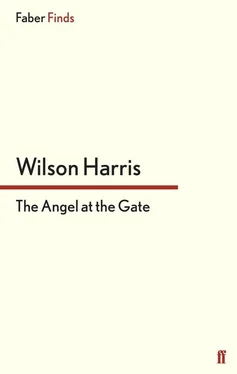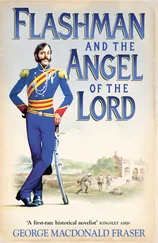It was the song that her mother was singing that brought it all back. “Mack the Knife”.
“Put on a record,” said Sebastian in the depths of the studio. “Tell the old woman to stop.”
“She isn’t old,” Stella protested.
Her mother stopped.
Stella wondered if she would fly, if she were offended, but no, she didn’t, the music returned once again coming this time from an old gramophone her mother possessed. It was “Mack the Knife” sung and played by Louis Armstrong. The absurdity and tall story lyric, oceanic city, were sustained by Armstrong’s height of trumpet and by his instrumental voice, hoarse and meditative in contrast to the trumpet he played, ecstatic cradle, ecstatic childhood, ecstatic coffin, ecstatic grieving surf or sea.
Where the shark bites with his teeth dear
Scarlet billows start to spray….
On the sidewalk Sunday morning
Lies a body oozing life….
Mack the Knife was a sailor. His follies, his callous epic of loves and crimes, left him bereft and exposed and storm-tossed, trumpet-tossed, on the hoarse sea or voice upon which he sailed from port of call to port of call through a procession of phantom women, Sukey Tawdrey, sweet Lucy Brown and Jenny Diver; all were apparently as doomed as he. Only a consummate naïveté , consummate riddle of childhood truth, could beach Mack the Knife in Armstrong’s and Stella’s mother’s voice and turn him into anti-climactic folly or hollow crime and into a pageant of tricks, the lame that walked, the blind that saw, the dying body that oozed life.
Stella was shivering. The fascination of the song for her mother was something that she grew up with. Mack was also the name that her father bore. Mack was her mother’s god. And her mother’s name? Guess , Stella whispered to Sebastian in the darkened studio. Jenny! It was a random hit, bull’s eye. It struck home. Jenny heard. She was weeping. It came with the faintest whisper of the sea, the faintest whisper of a flute, in the studio. Mack’s women were the Sukey Tawdreys, the sweet Lucy Browns, of the world. Between the ages of four and seven Stella thought that the postman was her father. Until she realized that he was but the middleman between her real father and Jenny her mother. He brought the letters from foreign ports with foreign stamps over which Jenny wept. On her seventh birthday the last letter arrived. Her father was dead, his ship sunk. It was a lie. It drove her mother in to an asylum where she contemplated Mack clinging for dear life to sarcophagus-globe even as she vanished into the arms of god, bride of god.
Stella was taken into care by a Social Welfare Body and placed in an orphanage in East Anglia.
The loss of her parents imbued her at an impressionable age with an ambivalence that was to haunt her all her life; an ambivalence that subsisted upon the apparent eclipse of her antecedents (Mack the Knife and Jenny Diver) hand in hand with a sensation of being pulled by them nevertheless into the depths and heights of the studio of place, studies of earth and sea and sky. It was akin to a dream of intensest moment she had forgotten though that dream was alive to contain her in its folds of unconscious memory, to possess her and to give her a sense of being charged with flight, a sense also of charging others to come to her or to be possessed by her. The energy of that charge broke life into several masks, several paths, several patterns of obliviousness by which Stella could bear her earliest terrors of love and death.
Jenny had been careless with the letters she received from Mack, and Stella read them all. Jenny’s carelessness had random design, random madness, random legacy. The letters she deposited infiltrated the records she played from rag-time to jazz, Delius to Sibelius. Stella recalled (yet did not recall) the names of the women of whom Mack wrote as if they were encapsulated forever in Lucy Brown and Sukey Tawdrey. Those musical names were masks that internalized themselves into arrested states of being, into curious half-child, half-woman brides of god — a failed god at times that she mocked. A god nevertheless she sought to prompt, to feed with cues, cues of her longing to change the world … The sea of East Anglian landscape became a mosaic of seasons as well as of nameless places within and without itself, an endangered paradise, an endangered ocean, haunting summons, a haunting enchantment.
Out of the depths of the studio “Mack the Knife” ceased and was followed by the music of Delius sailing across the Anglian sea of Stella’s orphanage upon which Mack’s women were subtilized into spectres of perennial however sordid grief, perennial however enchanting beauty.
First came “A Song of Summer”, one of Jenny’s favourite records.
The generous rise and fall of the waves (the cellos and basses) and the seagull gliding by (a flute theme) transported Stella into a meditative, child’s eye exultation and vision. Jenny Diver’s tears streamed down the sky into the sea but they were rich beyond every calculation, they almost seemed to choke her into serenity. In the midst of the waves the gull altered its shape. It beckoned, it called, from some endangered, yet serene, climate in which the no longer blind, no longer paralysed, no longer deaf composer lived.
Jenny turned now to “On Hearing the First Cuckoo in Spring”. Stella listened for the faint cuckoo, cuckoo. It came after — or in the midst of — a body of repeated phrases, short, glancing tears from Lucy Brown. There it was , faintest crack in the coffin of nature, cuckoo , phantom egg deposited in the nest of a stranger….
Jenny stopped the record and put on “Brigg Fair” in which folk-song and magical season blended and Sukey Tawdrey was subtilized beyond cheap or sordid encounter into delicate place, all her gaudy, funeral garments swinging in the lightest wind, the lightest alchemy of the fair of death and life; sometimes a slow, quiet swing or dance enveloped her limbs, only to be quickened again, enlivened again, into the commerce of heart and mind. Then came the poignant commodity of “Brigg Fair”’s grief, the “still sad music of humanity”, changing nevertheless into child’s eye wonder, pearls for tears, into a long bar of echoing stillness, sounding the heights and the depths, and summoning her, summoning her , to follow in the footsteps of the dancers on sarcophagus-globe, earth and sea and sky.
Lastly Jenny played “A Walk in the Paradise Garden”. Here it was that her departure seemed to grow imminent into an endangered paradise, half-Utopia, half-inferno. The mosaic sea gave way to snow mountains and ice maidens wreathed nevertheless in flowers plucked from a wild garden. The soft tread of spectres accompanying Jenny Diver and Sukey Tawdrey rose, sank back, rose again. Each spectre clung to the clarinets, to a pendulum that rose in one direction before it returned and melted into stillness, a stillness that was never wholly still, bride of both clock time and timelessness somewhere in the mountains above the sea or somewhere in space above the earth, in another planet where life and death whispered endless secrets to each other.
*
December brought the curtain of weather down over White City and broke upon Stella less with music and more with operatic mutes whose gestures were eloquent enough for the season of the year. They were sullen creditors, scarcely saying a word but threatening catastrophe unless they could collect money Sebastian owed them. They were not — Stella discovered — his greyhound pavement suppliers of speed but others of whom she knew nothing and from whom he had borrowed a fiver here, a fiver there, to bet on “the horses”. The horses had become a new lie. He sweated over bits of paper with the names of jockeys and favourites. Towards mid-December a terrifying jockey arrived, terrifying saviour, moment of truth. It was to make Stella see how dangerous their way of life had become, how prone they were to hurt each other, how third-party child could mirror judgement day.
Читать дальше












